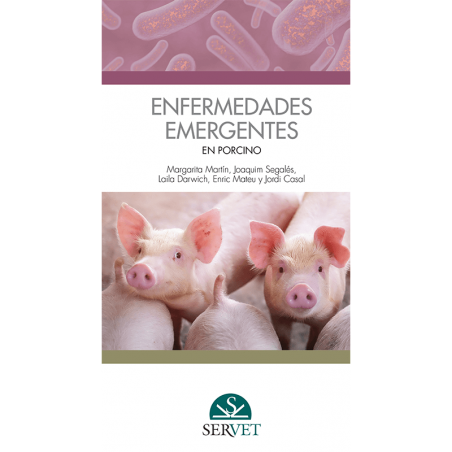Porcine periweaning failure-to-thrive syndrome (PFTS), an increasingly recognized syndrome in the swine industry of North America, is characterized by the anorexia of nursery pigs noticeable within 1 week of weaning, and progressive loss of body condition and lethargy during the next 1-2 weeks. Morbidity caused by PFTS is moderate, but case fatality is high.
The etiology of PFTS is presently unknown and may include infectious agent(s), noninfectious factors, or both. PFTS was identified in a high health status farm with good management in early 2007. A diagnostic investigation was undertaken to identify the pathological lesions of, and infectious agents associated with, pigs demonstrating typical clinical signs. Affected (PFTS-SICK) and unaffected (PFTS-HLTHY) pigs from an affected farm, and unaffected pigs from 2 unaffected farms, were examined. The most prevalent lesions in PFTS-SICK pigs were superficial lymphocytic fundic gastritis, atrophic enteritis, superficial colitis, lymphocytic and neutrophilic rhinitis, mild nonsuppurative meningoencephalitis, and thymic atrophy.

Rotavirus A and Betacoronavirus 1 (Porcine hemagglutinating encephalomyelitis virus) were identified only in PFTS-SICK pigs, but the significance of the viruses is uncertain because PFTS is not consistent with the typical presentation following infection by these pathogens. Porcine reproductive and respiratory syndrome virus, Porcine circovirus-2, Influenza A virus, Alphacoronavirus 1 (Transmissible gastroenteritis virus), Torque teno virus 1, Brachyspira hyodysenteriae, and Brachyspira pilosicoli were not identified in PFTS-SICK pigs. Suid herpesvirus 2 (Porcine cytomegalovirus), Porcine enteric calicivirus, Torque teno virus 2, pathogenic Escherichia coli, and coccidia were detected in both PFTS-SICK and PFTS-HLTHY pigs.
It was concluded that there is a lack of compelling evidence that PFTS is caused by any of these pathogens.
Huang Y, Gauvreau H, Harding J, Diagnostic investigation of porcine periweaning failure-to-thrive syndrome: lack of compelling evidence linking to common porcine pathogens, J Vet Diagn Invest. 2012 Jan;24(1):96-106. Epub 2011 Dec 6.








